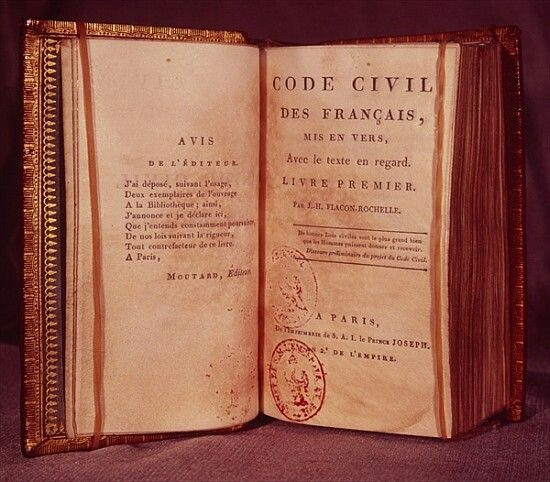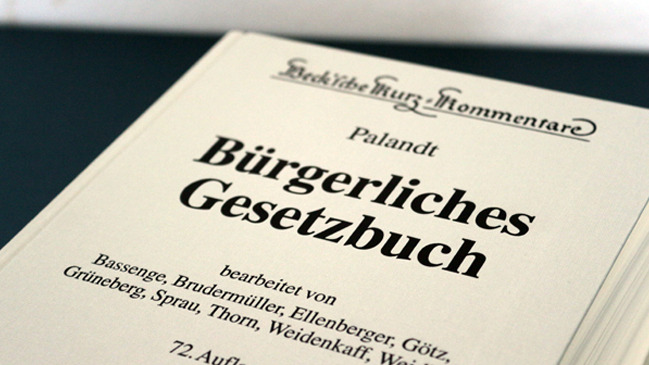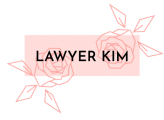
Tại các Bộ Dân luật Bắc 1931, Bộ Dân luật Trung (hay còn gọi là Hoàng Việt Hộ luật năm 1936-1939) và Bộ luật dân sự Sài Gòn 1972 (Việt Nam Cộng Hòa) đều có những quy định về quyền hưởng dụng / quyền dụng ích.
Quyền hưởng dụng được biết đến với nhiều tên gọi khác nhau. Điều 556 Bộ Dân luật Bắc 1931 gọi là “quyền ứng dụng thu lợi”: “Quyền ứng – dụng thu – lợi là quyền hưởng – dụng vật sở – hữu của người khác, cũng như sở – hữu chủ vậy, nhưng phải giữ nguyên vật ấy cho người ta”.
Điều 575 Hoàng Việt Hộ luật 1936-1939 quy định “quyền hưởng dụng thu lợi”: “Quyền hưởng – dụng thu – lợi là quyền hưởng – dụng một vật gì thuộc về quyền nghiệp – chủ của người khác, cũng hưởng – dụng như người nghiệp – chủ vậy, nhưng phải giữ nguyên vật ấy cho người ta”.
Điều 417 Bộ luật dân sự Sài Gòn 1972 (Việt Nam Cộng Hòa) gọi là “quyền dụng ích”: “Quyền dụng ích là một vật quyền cho phép hưởng dụng và thu lợi một tài sản thuộc quyền sở hữu của người khác trong một thời gian không quá đời sống của người thụ hưởng, với trách vụ giữ nguyên tài sản ấy”.
Quy định của pháp luật VIỆT NAM CỘNG HÒA về QUYỀN DỤNG ÍCH (Bộ Luật dân sự Sài Gòn 1972: điều 417-449) phù hợp với Bộ luật dân sự của Đức (1896) và Pháp (1804).
Đến pháp luật hiện đại Việt Nam, tại các Bộ luật dân sự năm 1995 cho đến Bộ luật dân sự năm 2005 không có bất cứ quy định nào liên quan đến quyền hưởng dụng. Bộ luật dân sự năm 2015 ghi nhận trở lại bằng các quy định cụ thể và được đặt tại phần quy định về quyền khác đối với tài sản cùng với quyền đối với bất động sản liền kề và quyền bề mặt.
Quyền hưởng dụng (QHD) được chính thức ghi nhận trong hệ thống pháp luật Việt Nam với tư cách là quyền khác đối với tài sản tại Bộ luật Dân sự (BLDS) năm 2015. QHD được BLDS năm 2015 định nghĩa là “quyền của chủ thể được khai thác công dụng và hưởng hoa lợi, lợi tức đối với tài sản thuộc quyền sở hữu của chủ thể khác trong một thời hạn nhất định” (Điều 257).
Pháp luật chuyên ngành như: Luật Doanh nghiệp, Luật Chứng khoán, Luật Đầu tư… chưa có quy định cụ thể về Quyền hưởng dụng đối với các loại tài sản đặc biệt như cổ phiếu, cổ phần, chứng khoán.

What is usufruct?
Usufruct is the right to use property and to collect income from it without owning it. The usufructuary has rights and obligations. The right to usufruct is temporary.
What is it about?
Usufruct is the right to enjoy property without owning it and provided that it is preserved. It is another person who has thenude-ownership good. You may be usufruct in one of the following situations:
- As a parent, you have usufruct on the property of your children under 16 years of age. Your children own the property.
- As a widow or widow, you receive the estate of your deceased spouse in usufruct. The deceased’s children become the owners of the property.
You can also benefit from a usufruct by will or by contract (sale or donation of a usufruct right). The property right is divided as follows:
- the unowned property for the owner,
- usufruct for the usufruct.
What are the rights of the usufructuary?
Right to use property
For example, you can use the property yourself or rent it.
The agreement of the naked owner is necessary for rural, commercial, craft or industrial leases.
Right to receive income from property
You get, for example, crops, interest on money, rent.
The income is collected during the entire duration of the usufruct.
At the end of the usufruct, you cannot claim compensation for improving the property.
What are its main obligations?
The main obligations of the usufructuary are as follows:
- Make an inventory if the property is movable property
- Make a statement of the condition of the property if it is real estate
- Ensure proper conservation of the property
- Undertake to reasonably enjoy the property by providing a signed document to the bare owner, unless the bare owner exempts you from this Pay the property tax and the home tax if the property is real estate
Make all maintenance repairs. Large repairs are the responsibility of the naked owner unless they are the result of a lack of maintenance on your part (for a real estate, large repairs only concern the large-scale work).
Assessment of usufruct
The distribution of the value of a property between usufruct and non-owner is determined by a tax schedule established according to the age of the usufruct. This scale allows the calculation of the registration fee in case of donation, succession, sale, etc.
Simulator: tax structure of usufruct and undivided ownership https://www.service-public.fr/particuliers/vosdroits/R49427
How does the usufruct end?
The following situations terminate the usufruct:
Death of the usufructuary (except in case of donation of his living or transmission by will)
Expiration of the agreed period
Where the owner of the usufruct and of the non-ownership becomes the same person
Non-use for 30 years
Waiver of usufruct
Total loss of the thing of the good
Abuse of use of the usufructuary (damage to property or lack of maintenance)
When the child who owns the property reaches 16 years of age (the parents’ legal usufruct of the property ends)

https://www.legifrance.gouv.fr/codes/id/LEGISCTA000006136246/
Création Loi 1804-01-30 promulguée le 9 février 1804
L’usufruit est le droit de jouir des choses dont un autre a la propriété, comme le propriétaire lui-même, mais à la charge d’en conserver la substance.
Section 2 : Des obligations de l’usufruitier (Articles 600 à 616)
Il donne caution de jouir raisonnablement, s’il n’en est dispensé par l’acte constitutif de l’usufruit ; cependant les père et mère ayant l’usufruit légal du bien de leurs enfants, le vendeur ou le donateur, sous réserve d’usufruit, ne sont pas tenus de donner caution.
Usufruit, a property, full property: what differences?
https://www.service-public.fr/particuliers/vosdroits/F33076?lang=en

A German usufruct (Nießbrauch) is the right to use and enjoy real or personal property in accordance with §§ 1030 to 1067 of the German Civil Code (BGB).
A usufruct is an in rem right, which means that it “binds the world” and does not only operates inter personam. It is a limited right as it does not provide for full ownership. Instead the use of a usufruct provides for limited ownership rights (“a stick in the bundle”).
The person entitled to a usufruct is called the usufructuary (Nießbraucher). The person whose interest in the property is limited by the right of the usufructuary is referred to as the owner burdened by the usufruct or “bare owner” (in some jurisdictions, e.g. Louisisana, also referred to as “naked owner”).
Section 1041
Maintenance of the thing
The usufructuary must provide for the maintenance of the thing in its economic condition. He is obliged to carry out repairs and renovations only to the extent that they are part of the normal maintenance of the thing.
Section 1047
Bearing of charges
The usufructuary is obliged to the owner to bear for the duration of the usufruct the public charges to which the thing is subject, with the exclusion of the extraordinary charges that are to be seen as based on the original value of the thing, and the private-law charges to which the thing was already subject at the date when the usufruct in the thing was created, in particular the interest on mortgage claims and land charges and the payment to be made on the basis of an annuity land charge.
Section 1055
Duty of return of the usufructuary
(1) The usufructuary is obliged to return the thing to the owner after the end of the usufruct.
(2) In the case of usufruct in an agricultural plot of land, the provisions of section 596 (1) and section 596a, and in the case of usufruct in an agricultural estate the provisions of sections 596 (1), 596a and 596b, apply with the necessary modifications.
§ 1055
Rückgabepflicht des Nießbrauchers
(1) Der Nießbraucher ist verpflichtet, die Sache nach der Beendigung des Nießbrauchs dem Eigentümer zurückzugeben.
(2) Bei dem Nießbrauch an einem landwirtschaftlichen Grundstück finden die Vorschriften des § 596 Abs. 1 und des § 596a, bei dem Nießbrauch an einem Landgut finden die Vorschriften des § 596 Abs. 1 und der §§ 596a, 596b entsprechende Anwendung.
Section 1061
Death of the usufructuary
The usufruct is extinguished with the death of the usufructuary. If the usufruct is due to a legal person or a partnership with legal personality, it is extinguished when the legal person or partnership with legal personality ends.
https://www.gesetze-im-internet.de/englisch_bgb/englisch_bgb.html#p4067
§ 1061 Tod des Nießbrauchers
1 Der Nießbrauch erlischt mit dem Tode des Nießbrauchers.
2 Steht der Nießbrauch einer juristischen Person oder einer rechtsfähigen Personengesellschaft zu, so erlischt er mit dieser.
§ 92
Verbrauchbare Sachen
(1) Verbrauchbare Sachen im Sinne des Gesetzes sind bewegliche Sachen, deren bestimmungsmäßiger Gebrauch in dem Verbrauch oder in der Veräußerung besteht.
(2) Als verbrauchbar gelten auch bewegliche Sachen, die zu einem Warenlager oder zu einem sonstigen Sachinbegriff gehören, dessen bestimmungsmäßiger Gebrauch in der Veräußerung der einzelnen Sachen besteht.
https://dejure.org/gesetze/BGB/92.html
§ 1047
Lastentragung
Der Nießbraucher ist dem Eigentümer gegenüber verpflichtet, für die Dauer des Nießbrauchs die auf der Sache ruhenden öffentlichen Lasten mit Ausschluss der außerordentlichen Lasten, die als auf den Stammwert der Sache gelegt anzusehen sind, sowie diejenigen privatrechtlichen Lasten zu tragen, welche schon zur Zeit der Bestellung des Nießbrauchs auf der Sache ruhten, insbesondere die Zinsen der Hypothekenforderungen und Grundschulden sowie die auf Grund einer Rentenschuld zu entrichtenden Leistungen.


